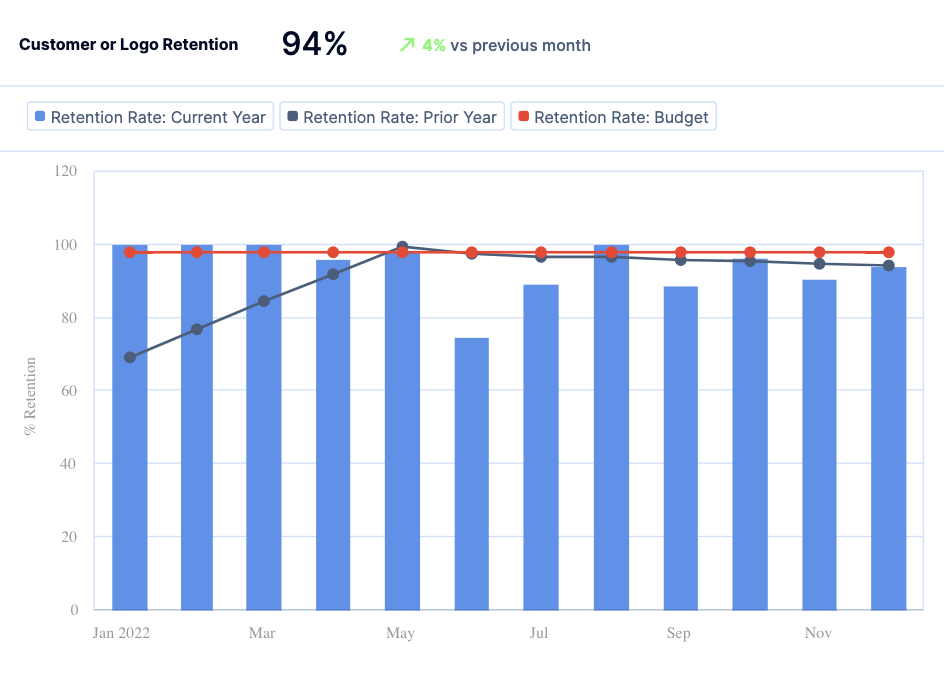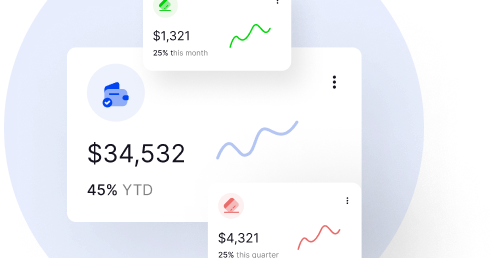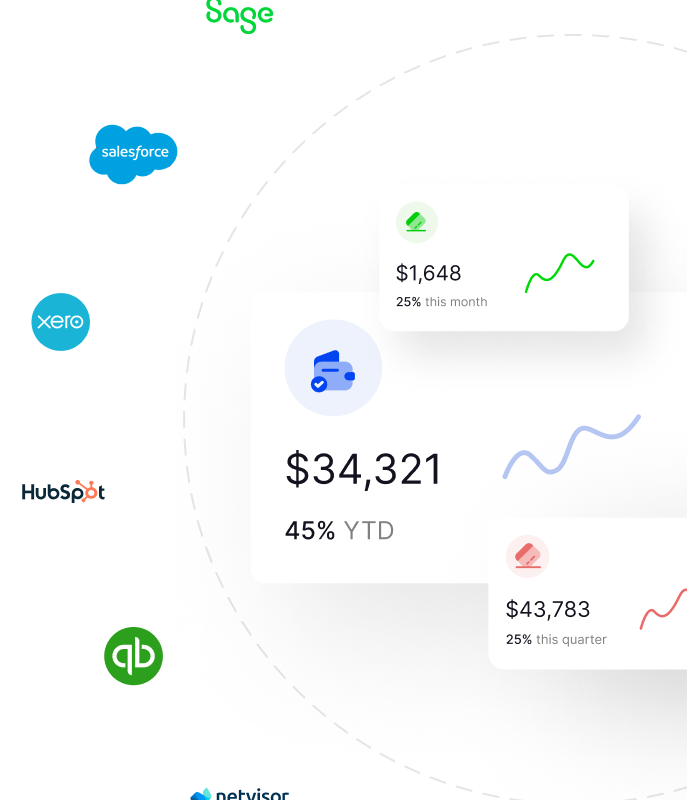What is Customer Retention Rate?
Customer retention rate is the percentage of existing customers who remain customers after a given period, generally one year.
How is customer retention calculated?
To calculate customer retention rate for a given period, take the number of customers at the end of that period less the number of new customers in that period and divide by the number of customers at the beginning of that period. Then multiply the result by 100.
Customer retention rate is most typically measured as an annual number, so if you are using quarterly or monthly data, take the rate to the power of the number of periods (4 or 12) to get the annual result. So, for example, a 96% retention rate in a quarter would translate to an 85% retention rate across a year (0.96 multiplied times itself four times).
Here is the annual customer retention rate, calculated from annual data.

In effect, customer retention is the opposite of customer churn, measuring the portion of customers that stay with a company. It can be measured several ways, including calculating the retention rate as described above or by tracking the number of repeat purchases or the length of time a customer continues to do business with a company. For many B2B SaaS companies, customer retention rate is synonymous with logo retention.
How is Customer Retention used by SaaS companies?
SaaS (Software as a Service) companies rely on customer retention as a key factor in their business model. A high customer retention rate generates consistent, predictable revenue and supports long-term growth.
What is a good Customer Retention Rate?
A good customer retention rate will vary depending on the specific industry and market in which a company operates, as well as its size and stage of development. In general, a high and consistently increasing customer retention rate is considered positive.
What are the Customer Retention benchmarks?
There are no specific benchmarks for customer retention, as it will vary significantly depending on the industry, market, and other factors. It is important for a company to track its customer retention rate over time and compare it to its own past performance.
Typically, Net Dollar Retention is used to measure customer retention across SaaS companies. See here for a full definition and details.
Customer Retention Visualisation Example
This chart is an example of customer retention shown over two years. Multi-year graphs make it much easier to understand trends, improvements, even seasonality.

ScaleXP fully automates customer retention rate calculations. Through integrations with both of your accounting and CRM systems, as well as a smart set of text recognition algorithms, the system provides a fully automated view of customer retention. Graphs, such as the one shown, are interactive, allowing you to easily see detailed data, even a breakdown by customer name.
Customer retention is just one of several important SaaS metrics, automated by the ScaleXP platform. To read more about how the system can automate your SaaS metrics, click here.
You may also be interested in

Customer Churn
Customer churn is the percentage of customers who stop doing business with a company or using a service.

Net Dollar Retention
Measures growth in revenue from a group of customers. Typically split into upgrades, downgrades, renewals and losses.
Net Revenue Churn
Increase in MRR from current customers, calculated from Churned and Downgraded less Upsells.


